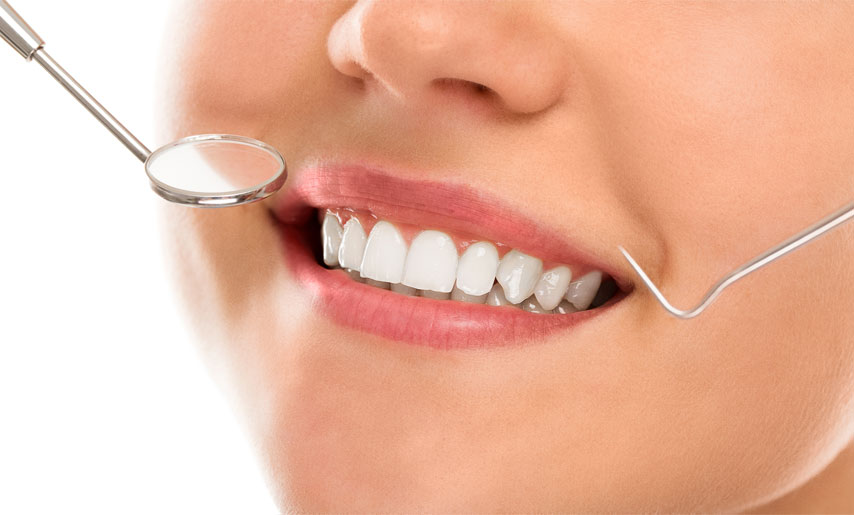
Smile without a worry: 4 Dental problems and their solutions
Smile without a worry: 4 Dental problems and their solutions
‘A smile is a curve that sets everything straight’ – Phyllis Diller.
As very rightly said, a healthy smile not only makes a good first impression it also has an impact on your social circle, relationships and Career, yet many of us hesitate to smile fully. We feel self-conscious about our ‘less than perfect’ set of teeth and hide our smile.
Our smile is defined by the Shape, size and orientation of our teeth as well as the health of our teeth, gums and surrounding structures.
Healthy teeth are important to cut, eat and chew our food. So it is important for us to regularly monitor the health of our teeth and thus always have a beautiful and healthy smile.
Here are some of the most common dental issues and the treatment for them.
Yellow or discoloured teeth: You may get yellow teeth if the outer coating of your tooth called enamel is eroded and the dark(Yellow) inner coating of the tooth called dentin is visible. Smoking or drinking too much tea or coffee can also cause discolouration in teeth. Sometimes too much fluoride in toothpaste and water can cause white-brown spots on your teeth. Lastly teeth may be discoloured due to some traumatic injury to the tooth
Solution: Treatment depends on the extent of discolouration and etiology. Sometimes simple over-the-counter bleaching agents/toothpastes do the job. However in most of the cases a proper in-office bleach is recommended for better results. In worse cases Your dentist can also do composite/Ceramic veneers which are thin shell types of materials fixed on your teeth or ceramic crowns to change their appearance.
Cavity: Cavities occur when your teeth decay and it affects the inner and outer coating of your tooth. Cavities occur when high carbohydrate foods stay on our teeth which are broken down by oral bacteria into acids. These acids with saliva and food debris become plaque that sticks to your teeth. Over time, the acid in the plaque erodes enamel creating pits known as cavities. Initially, you may not see a cavity but experience sudden pain, sensitive teeth, bad breath and pain when you bite down.
Solution: The course of action will depend on the extent of damage. The dentist will remove the affected area and fill the cavity using dental fillings. If the root of the tooth is damaged, you may need a root canal where the dentist removes the pulp that contains nerve endings that cause pain. If that option is not possible, you may need to extract the tooth and get a dental implant in its place to ensure your teeth do not shift and your biting isn’t affected as well as the appearance remains intact.
Broken Teeth: Teeth can break due to accidents, biting too hard or cavities. Minor tooth chipping or breaking doesn’t hurt but if it has chipped too much, it can cause pain. The pain may come and go and intensifies on chewing. The sharp edge of the tooth may even hurt your tongue while chewing or talking.
Solution: You will have to visit the dentist as earliest as possible. The dentist may polish the tooth if the chip is minor. Sometimes the dentist will fill the crack with filling material and a crown on top. If the pulp of the tooth is affected, you may need a root canal treatment.
Irregular Teeth: Heredity and genes play a role in having irregular or crooked teeth. Sometimes, it is difficult to clean between the irregular teeth which increases risk for dental problems. They interfere with chewing and may impact speech and personality of the person.
Solution: If you have decided to seek correction for your irregular teeth, you may need to visit an orthodontist. Based on the health of your teeth, gums and your age, they may suggest Removable, fixed or Aligners. Most commonly used fixed appliances for teens are Braces, You can select metal, ceramic or transparent braces based on your preference and budget. For working professionals Aligners (also called invisible braces) is also a great option. In some cases, orthodontists may suggest additional surgery to correct your alignment if it affects your chewing or speech.
Some general tips to take care of your teeth:-
● Brush your teeth twice a day with a soft brush and floss once a day. Flossing ensures that plaque deposited between your teeth is flushed out, preventing cavities and bad breath.
● Quit smoking as it causes discolouration of teeth, gives you bad odour and increases your risk for gum disease.
● Avoid too many sugary items and high carbohydrates foods as they can lead to plaque formation and tooth decay.
● Visit your dentist at least twice a year to prevent gum disease and dental problems. ‘Prevention is better than cure’





